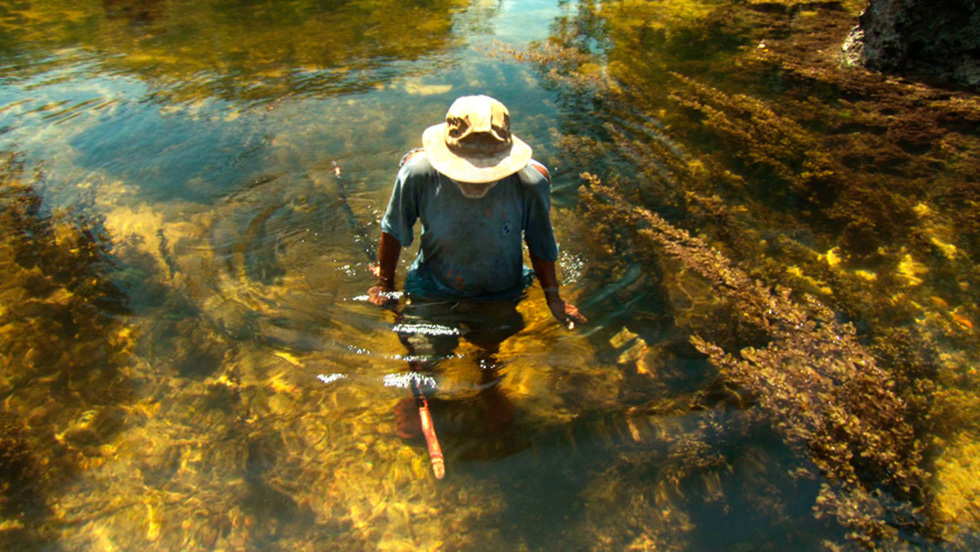
BY ALEXA SCHOENFELD |
"Film is a Universal Language"
TFF12 Best New Documentary Director winner Jeroen van Velzen discusses the magic behind his mystical film, Wavumba, and its star, legendary Kenyan fisherman, Masoud.

The New York screenings of TFF 2012 Best New Documentary Director Jeroen van Velzen’s mystical doc were a bit different than that held for the film’s subjects in their native Kenya. When Masoud, legendary shark fisherman and star of WAVUMBA, saw the film for the first time a month ago, he watched it on a “sail tied to a mango tree,” said van Velzen in a Q&A on Wednesday, April 25.
“Masoud had never seen a film, TV, or any moving image before,” the director added. But as Masoud viewed the film, van Velzen kept his eyes on the film’s star and local phenom. “I saw his emotions, and he really understood [the film and what was happening], which was really baffling—but also beautiful. It just shows film is a universal language.”

Mesmerized by the cinematic folktale they had “the privilege” to screen, the Tribeca audience was eager to learn about the filmmaker’s connection to the people and the land showcased in WAVUMBA—which means ‘they who smell of fish’ in Masoud’s native tongue. The idea of this lyrical film had been a long-held dream of van Velzen’s ever since his childhood in Kenya, where he “heard wild stories about fishermen, and would daydream about [them].” And despite his “biggest fear” of possibly failing to capture these beautiful fantasies and the feeling of this land, his striking film undoubtedly achieves his goal “to look at reality and try to look at the surroundings [of this Kenyan village] like a child.”
The film chronicles the elderly Masoud on his momentous voyage to score his last grand catch. Accompanied by the young and robust Juma, Masoud’s “grandson”—a term of endearment; van Velzen clarified that despite this title, the two are not biologically related—Masoud grapples with the realities of his age and the increasing physical limitations on his life’s work, which earned him the status of “the most powerful man on the island 30 or so years ago. Everyone on the island knows him.”

Yet despite Masoud’s enchanting face and air of “total self-confidence,” the film highlights the importance of the elder’s dedicated apprentice. “He and Juma are really connected,” van Velzen reaffirmed. Especially when the two are at sea, Juma is now integral to Masoud’s process, even “holding Masoud” off the edge of the boat “when he needed to poo. Juma helped him do that.” Upon hearing this, the audience lightly laughed without a hint of repulsion, further proving the emotional attachment one undeniably feels for the fisherman upon viewing van Velzen’s enchanting film.

The evening ended as van Velzen was asked about Masoud’s reaction to the filming process; having never seen a moving image before, the old man was, of course, unfamiliar with any of the according equipment and processes. And while Masoud “had no reference about a camera,” this was the least of his concerns. As the filmmaker said with a smile on his face, “No one really takes [Masoud] seriously anymore. So when I walked in and wanted to hear his stories, he was thrilled for the chance to talk all day long.” It seems that Masoud’s experience in filming was just like ours as viewers: the camera melts away and we are seamlessly transported into this magical world of folklore, fishing, and family.
As an award winner. Wavumba screens two more times on Sunday, April 29.